#partner 1968
Photo
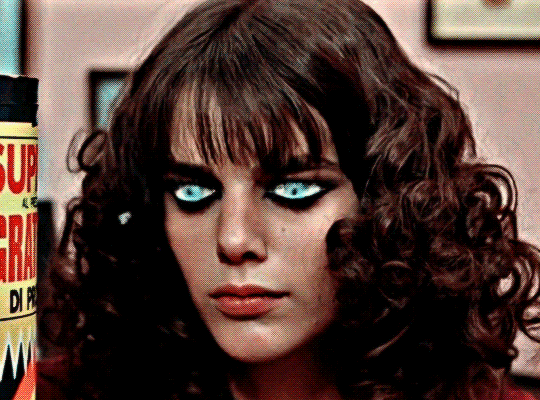
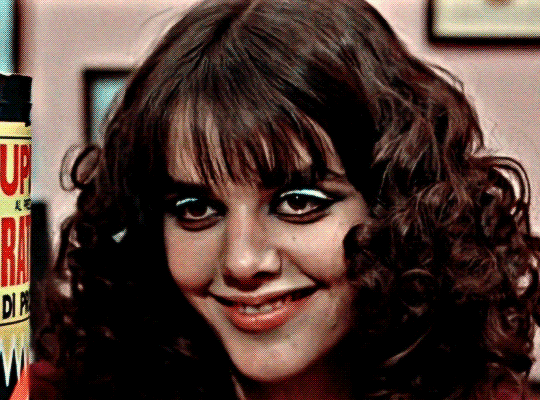
Tina Aumont in Partner (1968) dir. Bernardo Bertolucci
2K notes
·
View notes
Text
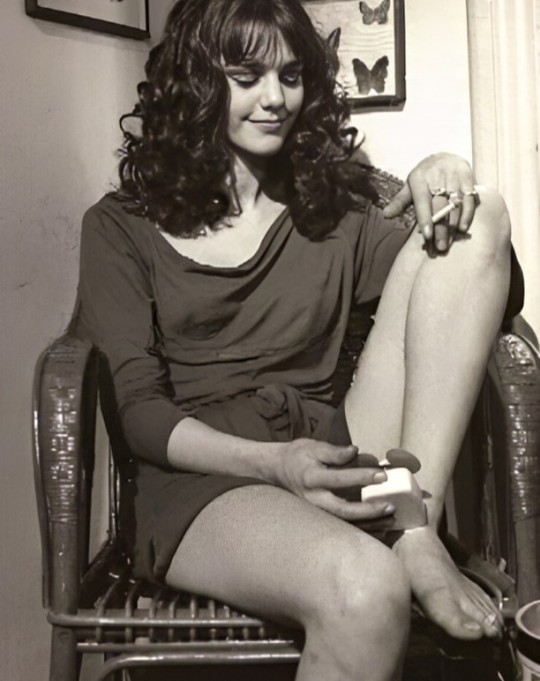
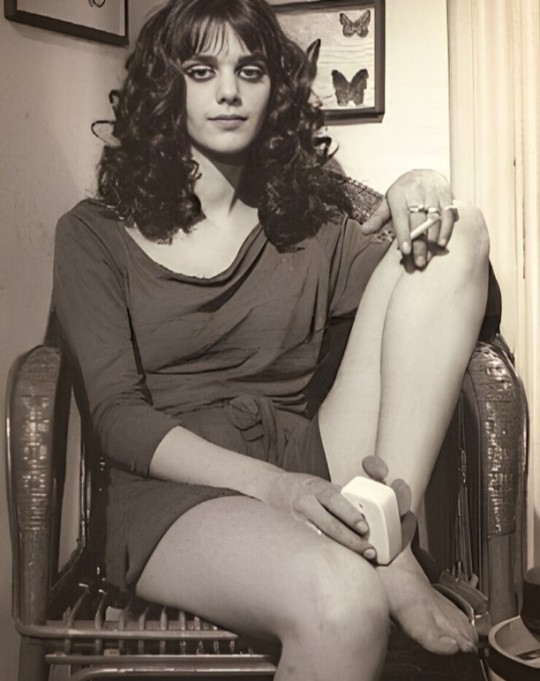
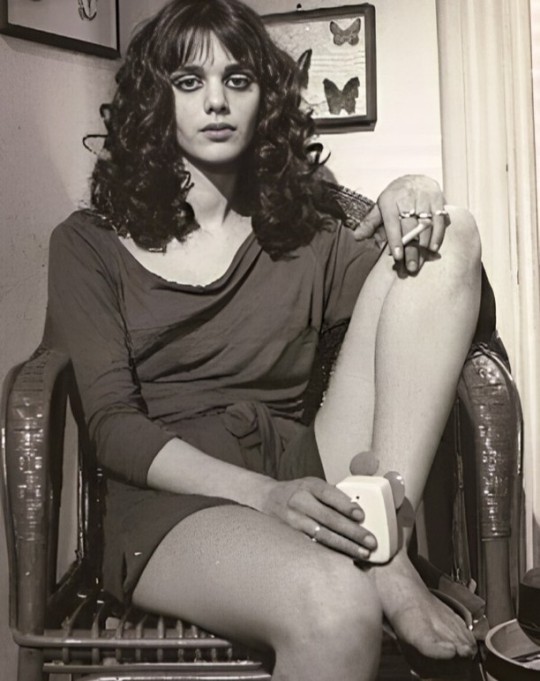
Beautiful Tina pictured by Aldo Liverani on the set of Partner (Bernardo Bertolucci, 1968).
Very special thanks to Andrea who posted these set of photos at her instagram Jeanne Damonte .💋
#Tina Aumont#actress#filming Partner#1968 filming Partner#Partner#1968 Partner#Aldo Livernari#1968 aldo Liverani#Bernardo Bertolucci#collaboration#Tina fans stand united
41 notes
·
View notes
Text
I'm keeping this on hand for whenever someone says Aidan doesn't like being seen as sexy by fans and strangers. She told him he was sexy and he made a video with her AND he bought her a drink so....

#aidan gillen#he's a white man born in 1968#im positive he doesn't mind tons of women wanting to bone him#does that mean he wouldn’t mind it if you said something gross?#NO#also doesn't mean hed want you to say anything like that in front of his partner#but in general im pretty sure he likes it#petyr baelish#littlefinger#fan encounters
62 notes
·
View notes
Note
Have you read Nixon and Kissinger by Robert Dallek? I read it years ago, probably the first book I ever read about Nixon, and I found Nixon so interesting (and in some ways tragic, even with all of the negatives) as a person.
Oh yeah, Nixon is an exceptionally interesting historical figure and a very complex human being. And he had a remarkable life. I mean, we're always going to focus on his failures, on Watergate, and on his negatives -- and deservedly so. But his entire life was fascinating. He was elected Vice President of the United States before he turned 40 years old! He BARELY lost a Presidential election to John F. Kennedy, of all people! His political prospects were believed to be dead after his humiliating loss in the 1962 race for Governor of California and he was written off as a politician, but six years later he was President. And in 1972 he won 49 out 50 states. To fully process the magnitude of that margin of victory, this is what the Electoral College map looked like on Election Day 1972:
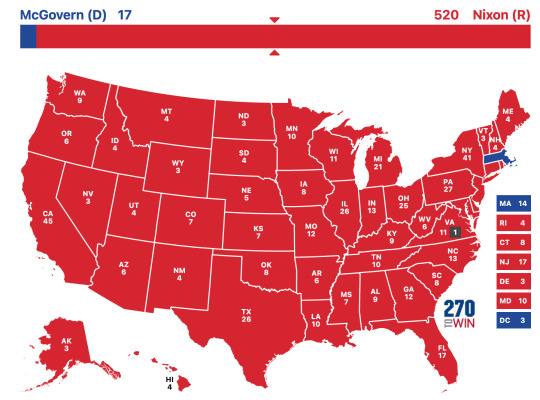
It was one of the biggest landslides in American history -- and it still wasn't enough for him.
Nixon's story is so amazing that it almost doesn't matter who is telling it -- tragic, yes, but also infuriating because he had the ability to achieve so much more if he had taken a different path or had a different personality. And Robert Dallek is one of our greatest Presidential historians, so Nixon and Kissinger: Partners in Power (BOOK | KINDLE), is an excellent book and I definitely would recommend checking it out (along with everything else by Dr. Dallek)
#History#Presidents#Richard Nixon#President Nixon#Robert Dallek#Nixon and Kissinger: Partners in Power#Nixon and Kissinger#Henry Kissinger#Books#Book Suggestions#Book Recommendations#1972 Election#1968 Election#1960 Election
17 notes
·
View notes
Text
Okay, and now we've got Corey so desperate to save Jemal that he asks the brother of a surgeon to perform surgery on him since he was the closest thing to a doctor available, and then when the brother of a surgeon can't do it, just. Fuckin'. Doing the surgery himself
Doctor's brother: Probe, just don't hit an artery
Corey: What does an artery look like!?
Me: 😬
#there's also been a lot of Partner talk in this episode#and whether or not they have space for each other in their worlds#it's. it's a lot. just so much discomfort. but also so bizarrely heartfelt. what is this fucking show#the outcasts 1968
0 notes
Text
“I’m sure that if [Paul] had been a woman or something, he would have been a great threat, because there’s something definitely very strong with me, John, and Paul.”
— Yoko Ono, Revolution Tape, June 4th 1968. [x]
“. . . I mean, I think really what it was, really all that happened was that John fell in love. With Yoko. And so, with such a powerful alliance like that, it was difficult for him to still be seeing me. It was as if I was another girlfriend, almost. Our relationship was a strong relationship. And if he was to start a new relationship, he had to put this other one away. And I understood that. I mean, I couldn’t stand in the way of someone who’d fallen in love. You can’t say, “Who’s this?” You can’t really do that. If I was a girl, maybe I could go out and… But you know I mean in this case I just sort of said, right – I mean, I didn’t say anything, but I could see that was the way it was going to go, and that Yoko would be very sort of powerful for him. So um, we all had to get out the way.”
— Paul McCartney, interview with German tv program Exclusiv, April 1985. [x]
“It’s just handy to fuck your best friend… and once I resolved the fact that it was a woman as well, it’s all right. I liked her cause she was like a bloke in drag… like a mate.”
— John Lennon talking about Yoko Ono - Powers of Two by Joshua Wolf Shenk. [x]
“I still think at the back of John’s mind was this fascination of wanting to get back with the first girlfriend, if you like, and that was to get back with Paul, who he had so much history with.”
— Tony Barrow, The Beatles’ press officer, on the Lennon/McCartney reunion that was never to be. [x]
“My “simplest, most logical” reason that Yoko treated Paul as her main rival for John’s affections was… he was the main rival for John’s affections… How many books have been written about Lennon and McCartney, and on that period specifically, and not one of them has seriously suggested that John might be a bisexual man in love with his songwriting partner and closest adult companion? Now, we have writers timidly peeking out and saying, “Gee, it’s almost as if John was in love with Paul.” Has the evidence changed? Not much. Have we as a society become more educated and tolerant? Yes.”
— Michael Gerber, Hey Dullblog. [x]
#mclennon#paul mccartney#john lennon#yoko ono#anthology of mclennon#i just needed these grouped together because there's definitely significance
1K notes
·
View notes
Text
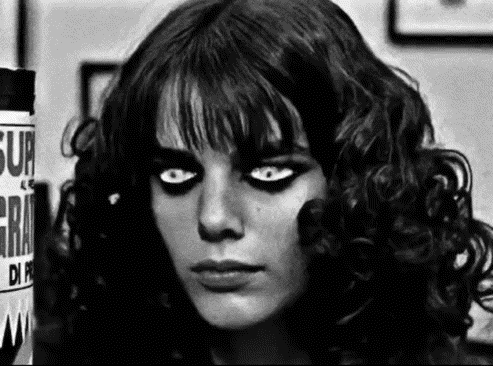
Tina Aumont in Partner, 1968
#tina aumont#60s girl#aesthetic#vintage#old school cool#style#the eyes#eyes of heaven#60s movies#60s aesthetic#spooky girls#the evil eye
879 notes
·
View notes
Text

The Ross building - York University, by Gordon S. Adamson, John B. Parking, Shore and Moffat and Partners (1962-1968).
Toronto, Ontario - Canada.
© Roberto Conte (2022)
#architecture#architecturephotography#architektur#architettura#brutalism#brutalist#brutalismo#canada#“york university”#“ross building”#toronto
575 notes
·
View notes
Text
"10 Things I Hate About You" is a hate-to-love story between a delinquent Rahu boy and a badass feminist Ketu girl mwahaha. It does have Beauty-&-The-Beast elements but it's him trying to 'tame' her — more like coerce her which is typical of Rahu's illusory nature (& the film has a lot of internalized misogyny).
Ardra Moon

Mula Moon

And then the reverse of this is in "You", both falling in love and then turning to hate each other lmaoo literally trying to kill each other in the end too 😭
Mula Moon

Swati Moon, Swati Sun

Actually Rahuvian men victimizing/preying upon Ketuvian women... cause in "You" he kills his Mula Moon partner in the end. And in "Last Night In Soho", the Ketuvian becomes captivated by the charismatic Rahuvian who she ends up falling prey to, like all the other girls have — although she does kill him in the end (as deserved 🖤).
Ashwini Sun
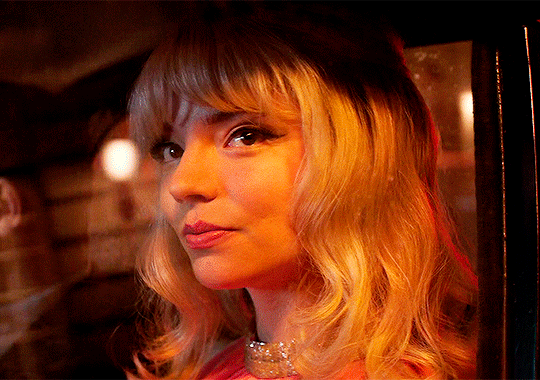
Shatabhisha Moon, Swati Sun
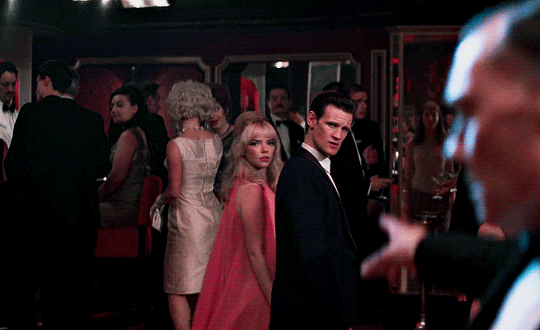
Same thing happened in "Scream", and she's the one to kill him in the end. He's an Ardra Moon and she's a Mula Moon 💀

Also I see the forbidden love trope being between Nodal nakshatras (and also Mercurials but will be touching on that laters). Like the film "Brokeback Mountain" with a Mula Sun man and an Ardra Moon man.
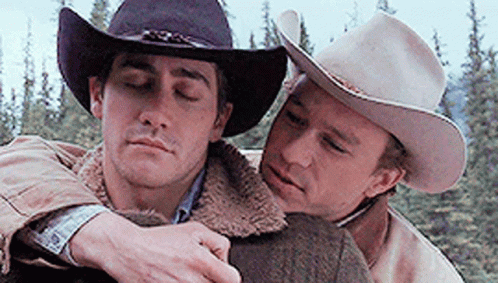
Romeo & Juliet (2013), she's an Ardra Ascendant and he's a Swati Moon.
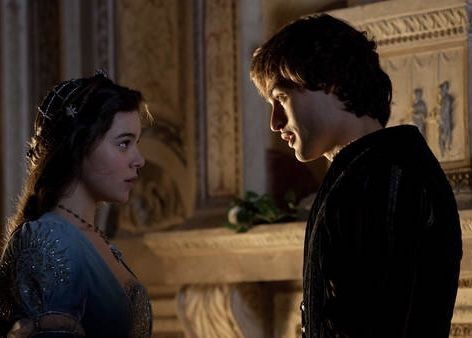
Also Romeo & Juliet (1968), she's an Ashwini Sun & Magha Moon and he's an Ardra Sun.

The Turkish drama "Ask-i Memnu", another forbidden love storyline with a Mula Moon, Shatabhisha Sun woman and an Ardra Moon, Swati Sun man.
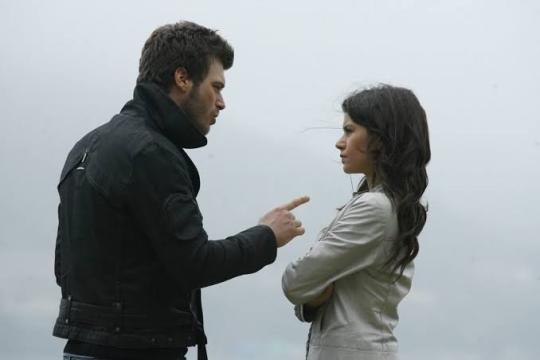
AND the Spanish version of it which has a Mula Moon woman and an Ardra Moon, Ashwini Sun man!
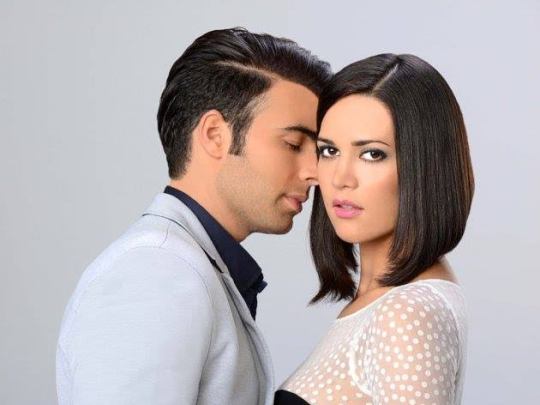
And in the story the Ketuvian woman dies in the end because of his ego 💀
#random#vedic astrology#astrology#astro observations#sidereal astrology#Ashwini#Shatabhisha#Magha#Swati#Mula#Ardra#Aries#Aquarius#Leo#Sagittarius#Libra#Gemini
269 notes
·
View notes
Text

FATHER & SON: James Earl Jones with his Father Robert Earl Jones on Stage in the 1962 Production "Moon on a Rainbow Shawl."
Robert Earl Jones (February 3, 1910 – September 7, 2006), sometimes credited as Earl Jones, was an American actor and professional boxer. One of the first prominent Black film stars, Jones was a living link with the Harlem Renaissance of the 1920s and 1930s, having worked with Langston Hughes early in his career.
Jones was best known for his leading roles in films such as Lying Lips (1939) and later in his career for supporting roles in films such as The Sting (1973), Trading Places (1983), The Cotton Club (1984), and Witness (1985).
Jones was born in northwestern Mississippi; the specific location is unclear as some sources indicate Senatobia, while others suggest nearby Coldwater. He left school at an early age to work as a sharecropper to help his family. He later became a prizefighter. Under the name "Battling Bill Stovall", he was a sparring partner of Joe Louis.
Jones became interested in theater after he moved to Chicago, as one of the thousands leaving the South in the Great Migration. He moved on to New York by the 1930s. He worked with young people in the Works Progress Administration, the largest New Deal agency, through which he met Langston Hughes, a young poet and playwright. Hughes cast him in his 1938 play, Don't You Want to Be Free?.
Jones also entered the film business, appearing in more than twenty films. His film career started with the leading role of a detective in the 1939 race film Lying Lips, written and directed by Oscar Micheaux, and Jones made his next screen appearance in Micheaux's The Notorious Elinor Lee (1940). Jones acted mostly in crime movies and dramas after that, with such highlights as Wild River (1960) and One Potato, Two Potato (1964). In the Oscar-winning 1973 film The Sting, he played Luther Coleman, an aging grifter whose con is requited with murder leading to the eponymous "sting". In the later 20th century, Jones appeared in several other noted films: Trading Places (1983) and Witness (1985).
Toward the end of his life, Jones was noted for his stage portrayal of Creon in The Gospel at Colonus (1988), a black musical version of the Oedipus legend. He also appeared in episodes of the long-running TV shows Lou Grant and Kojak. One of his last stage roles was in a 1991 Broadway production of Mule Bone by Hughes and Zora Neale Hurston, another important writer of the Harlem Renaissance. His last film was Rain Without Thunder (1993).
Although blacklisted by the House Un-American Activities Committee in the 1950s due to involvement with leftist groups, Jones was ultimately honored with a lifetime achievement award by the U.S. National Black Theatre Festival.
Jones was married three times. As a young man, he married Ruth Connolly (died 1986) in 1929; they had a son, James Earl Jones. Jones and Connolly separated before James was born in 1931, and the couple divorced in 1933. Jones did not come to know his son until the mid-1950s. He adopted a second son, Matthew Earl Jones. Jones died on September 7, 2006, in Englewood, New Jersey, from natural causes at age 96.
THEATRE
1945 The Hasty Heart (Blossom) Hudson Theatre, Broadway
1945 Strange Fruit (Henry) McIntosh NY theater production
1948 Volpone (Commendatori) City Center
1948 Set My People Free (Ned Bennett) Hudson Theatre, Broadway
1949 Caesar and Cleopatra (Nubian Slave) National Theatre, Broadway
1952 Fancy Meeting You Again (Second Nubian) Royale Theatre, Broadway
1956 Mister Johnson (Moma) Martin Beck Theater, Broadway
1962 Infidel Caesar (Soldier) Music Box Theater, Broadway
1962 The Moon Besieged (Shields Green) Lyceum Theatre, Broadway
1962 Moon on a Rainbow Shawl (Charlie Adams) East 11th Street Theatre, New York
1968 More Stately Mansions (Cato) Broadhurst Theatre, Broadway
1975 All God's Chillun Got Wings (Street Person) Circle in the Square Theatre, Broadway
1975 Death of a Salesman (Charley)
1977 Unexpected Guests (Man) Little Theatre, Broadway
1988 The Gospel at Colonus (Creon) Lunt-Fontanne Theatre, Broadway
1991 Mule Bone (Willie Lewis) Ethel Barrymore Theatre, Broadway
FILMS
1939 Lying Lips (Detective Wenzer )
1940 The Notorious Elinor Lee (Benny Blue)
1959 Odds Against Tomorrow (Club Employee uncredited)
1960 Wild River (Sam Johnson uncredited)
1960 The Secret of the Purple Reef (Tobias)
1964 Terror in the City (Farmer)
1964 One Potato, Two Potato (William Richards)
1968 Hang 'Em High
1971 Mississippi Summer (Performer)
1973 The Sting (Luther Coleman)
1974 Cockfighter (Buford)
1977 Proof of the Man (Wilshire Hayward )
1982 Cold River (The Trapper)
1983 Trading Places (Attendant)
1983 Sleepaway Camp (Ben)
1984 The Cotton Club (Stage Door Joe)
1984 Billions for Boris (Grandaddy)
1985 Witness (Custodian)
1988 Starlight: A Musical Movie (Joe)
1990 Maniac Cop 2 (Harry)
1993 Rain Without Thunder (Old Lawyer)
TELEVISION
1964 The Defenders (Joe Dean) Episode: The Brother Killers
1976 Kojak (Judge) Episode: Where to Go if you Have Nowhere to Go?
1977 The Displaced Person (Astor) Television movie
1978 Lou Grant (Earl Humphrey) Episode: Renewal
1979 Jennifer's Journey (Reuven )Television movie
1980 Oye Ollie (Performer) Television series
1981 The Sophisticated Gents (Big Ralph Joplin) 3 episodes
1982 One Life to Live
1985 Great Performances (Creon) Episode: The Gospel at Colonus
1990 True Blue (Performer) Episode: Blue Monday
#james earl jones#black tumblr#black literature#black community#black excellence#blackexcellence365#actor#robert earl jones#stage actor
201 notes
·
View notes
Text

Office and Apartment Building “Sternhaus” (1968-72) in Düsseldorf, Germany, by Hentrich, Petschnigg & Partner
#1960s#apartment building#concrete#brutalism#brutalist#architecture#germany#nachkriegsarchitektur#nachkriegsmoderne#architektur#düsseldorf#hpp
184 notes
·
View notes
Text
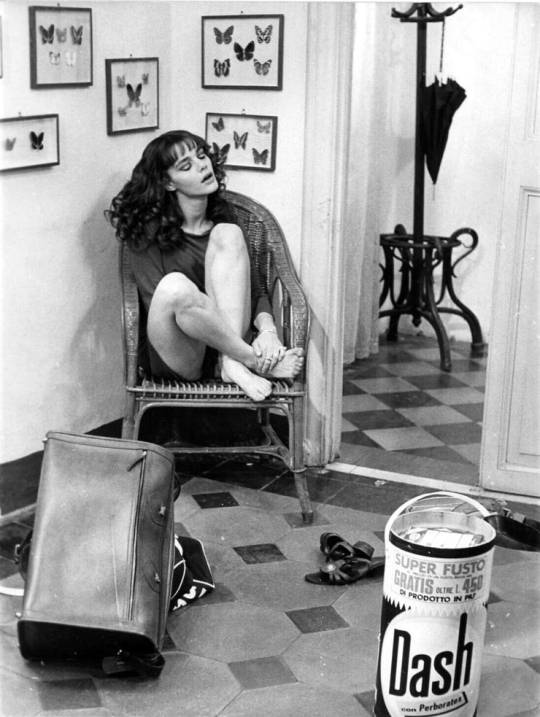
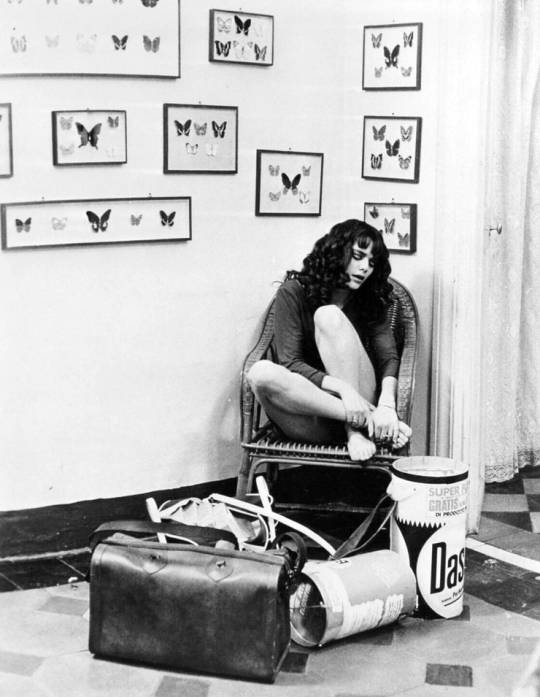
Two photos of Tina Aumont taken while filming Partner (Bernardo Bertolucci, 1968).
I guess these photos were taken by Aldo Liverani, are posted at listal but there's no mention of who took them.
#Tina Aumont#actress#alternative actress#alternative film#underground film#cult film#Partner#1968 Partner#Bernardo Bertolucci#Aldo Liverani#1968 Aldo Livernari
31 notes
·
View notes
Text
1968 [Chapter 2: Hera, Goddess Of Childbirth]
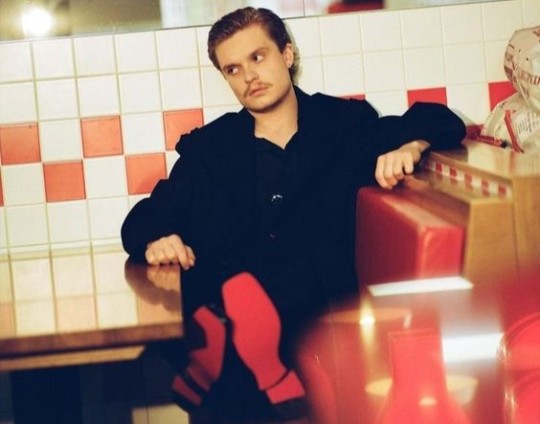
A/N: Enjoy Chapter 2 a little early! See you on Sunday for Chapter 3 🥰
Series Summary: Aemond is embroiled in a fierce battle to secure the Democratic Party nomination and defeat his archnemesis, Richard Nixon, in the presidential election. You are his wife of two years and wholeheartedly indoctrinated into the Targaryen political dynasty. But you have an archnemesis of your own: Aemond’s chronically delinquent brother Aegon.
Series Warnings: Language, sexual content (18+ readers only), violence, bodily injury, character deaths, New Jersey, age-gap relationships, drinking, smoking, drugs, pregnancy and childbirth, kids with weird Greek names, historical topics including war and discrimination, math.
Word Count: 5.4k
Tagging: @arcielee @huramuna @glasscandlegrenades @gemmagirlss1 @humanpurposes @mariahossain @marvelescvpe @darkenchantress @aemondssapphirebussy @haslysl @bearwithegg @beautifulsweetschaos @travelingmypassion @althea-tavalas @chucklefak @serving-targaryen-realness @chaoticallywriting @moonfllowerr @rafeism @burningcoffeetimetravel-fics @herfantasyworldd @mangosmootji
💜 All of my writing can be found HERE! 💜
You are buzzed at a private party in the Rainbow Room of Rockefeller Center, Midtown, February 1966, chandeliers and candlelight, pink and red hearts made of paper hanging from shimmering strings and littering the floor. Your roommate Barbara Nassau Astor—yes those Astors, Astor Avenue in the Bronx, Astoria in Queens, “the landlords of New York”—brought you along tonight, and the chance to be swept up into her glittering existence is precisely why your father sent you to a school like Manhattanville College of the Sacred Heart. Barb knows people who know people who know other people and every single individual in that grand design is wealthy and worldly and could possibly lead you into the generous arms of your future husband. You are from Tarpon Springs, Florida, heiress to a sea sponge fortune, and your father nurses powerful ambitions of intermingling his blood with the Northeastern elite.
You scan the selection as you sip your Pink Squirrel. You could marry a doctor and sit in the living room waiting for him to come home at 9 or 10 or 11 p.m., fix him a Whiskey Sour or a Sazerac, listen to him bemoan the complexities of nerves and veins before accompanying him to bed and repeating the whole process the next day. You could marry a lawyer or an advertising executive, and your fate would be much the same. Your own parents are partners in life and business, but you have seen enough to know how rare this is. These men of the Rainbow Room, 65 floors above icy streets radiant with headlights, want a wife whose hands will stay manicured and idle: nannies will tend to the children, maids will clean the house, mistresses will massage the knots out of the muscles of his back. And you—a relative upstart, new money among ancient bloodlines—will have no right to demand otherwise.
A man interrupts your reverie. He wants to know about the pendant you wear around your neck. You sigh before you turn to him; you resist the instinct to roll your eyes. And then you see him. Tall, blonde, blue-eyed, with a curious intensity and a teasing little smirk, an Old Fashioned in his grasp like molten gold. You don’t know it yet, but he is a senator from New Jersey, very recently elected, victorious yet still hungry. He steals the oxygen out of your lungs. He drowns you in the amber-musk warmth of his cologne.
“It’s Athena,” you say, touching your fingertips to the silver medallion self-consciously; and you are rarely self-conscious. The black polish has been scrubbed from your nails and replaced with a soft, shimmering champagne. You spent two hours this afternoon having your hair painfully teased and arranged into a Brigitte Bardot-inspired updo.
“Goddess of wisdom.”
“And war and peace. And math.”
“Math?” He is intrigued.
“That’s what I’m studying at school. Math.”
“And yet you are not disinterested in the humanities. You know Greek mythology.”
“Well, Tarpon Springs has a lot of Greeks, and that’s where I’m from, so.”
“Studies math. From Tarpon Springs, Florida. I’m learning everything about you.” He smiles, this magnetic stranger who has captured you like a moon lured into a planet’s gravity. He swallows a mouthful of his Old Fashioned, moisture glistening on his lips. “Do you like Greek food?”
You can’t seem to follow his words. Blood is rushing into your face, hot and dizzying. “What?”
“Greek food. Have you tried it? Hummus, tzatziki, gyros, spanakopita, horiatiki, baklava.”
“Oh yeah, I’ve had it. It’s great.”
“My family owns a house on Long Beach Island,” he says casually. “We eat a lot of Greek food there. You should join us for dinner sometime soon.”
“Really?”
“Yes. Very soon. Maybe this weekend. Are you free?”
No, you’re not; but you’ll cancel plans until you are. “Um, okay. Sure. And who…sorry, I might have missed it, but…who are you…?”
“Aemond Targaryen.” And he shakes your hand like you’re someone who matters. “I’m a senator. I’m trying to end the war.”
With him, you could be a part of something magnificent. With him, you could help save the world.
~~~~~~~~~~
Asteria is the goddess of falling stars, but the home of rising ones. On the north end of Long Beach Island, New Jersey—only 100 miles south of the sleek bladelike skyscrapers of Manhattan—lies the sprawling Targaryen estate. The nine-acre property features one main house and another three for guests, a swimming pool, a tennis court, a ten-car garage, a boathouse, a pier, and an ample stretch of beach that abuts the Atlantic Ocean, open water with nothing interrupting the infinite, miles-deep blue from the East Coast to the Iberian Peninsula. It is the first week of July, 1968, and your 23rd birthday. You are lazing in a lounge chair on the emerald green lawn and eating your third slice of melopita, a cheesecake-like dessert made with honey and ricotta. It originates from the Greek island of Sifnos.
“You two can’t murder each other while I’m gone,” Aemond says. He’s sitting between you and Aegon. His stitches have healed, the worst of his pain has subsided, his poll numbers have only improved since the assassination attempt. He has a glass eye that he can insert for public appearances, but he dislikes it; at home he wears a leather eyepatch that still unnerves the children. Tomorrow, Aemond is flying to Tacoma to campaign ahead of the Washington State Convention on the 13th. Most of the family will be joining him, with only three Targaryens remaining at Asteria: ailing Viserys, useless Aegon, and you, officially too pregnant to travel by plane. You are wearing a floral, flowing, two-piece swimsuit. The sun is blazing in a clear sky. The record player is piping out Time Of The Season by the Zombies.
Aegon waves a hand flippantly, then adjusts his preposterously large blue-tinted plastic sunglasses; he is shirtless, flabby, very sunburned. “I’ll barely be here.”
Aemond looks over at him, amused. “Oh yeah? And what pressing engagements do you have to attend to? I’d love to know.”
You take a bite of your melopita and scatter crumbs across the swell of your belly: seven and a half months along. “I’m sure the prostitutes miss him.”
“They do,” Aegon snaps. “I’m their favorite customer.”
“Well you’re a reprieve for them. It’s always over so quickly.”
Aemond is snickering. Aegon says to him: “23, huh? A 13-year age difference. She could almost be your daughter.”
“And 17 years younger than you. She could definitely be yours.”
“That’s how Aegon likes his girls,” you say. “Too inexperienced to recognize end-stage degeneracy. Still stumbling their way through Shakespeare for English class.”
“Why can’t she stay at the brownstone?” Aegon asks irritably. Aemond owns a historic townhouse in Georgetown for when Congress is in session, though he’s rarely been there since he announced that he was running for president.
“Because Doxie is here to make sure she’s taken care of,” Aemond replies. Eudoxia has been the head housekeeper of Asteria for decades, a formidable battleaxe of a woman who speaks very little English and has a seemingly endless supply of patterned scarves to wrap around her ink black dyed hair. There currently aren’t any permanent staff stationed at the brownstone, and Aemond does not trust strangers. “And because my future first lady is hosting a tea party on the 10th.”
“A tea party!” Aegon gasps, mocking you. “Surely that will patch the wounds of our troubled nation. She’s an inspiration. She’s motherfucking Gloria Steinem.”
“She’s Aphrodite,” Aemond says, beaming with pride, his remaining eye fixed on your belly. He’s lost one piece of himself, but in a month and a half he’ll gain another. “Goddess of love.”
“There must be a more appropriate mythological character. Medusa, perhaps. Lyssa was the goddess of rabies, Epiales was the goddess of nightmares.”
“Aegon, I had no idea you were so…” You search for the right word. “Literate.”
“Io was turned into a cow.” He grins at you, toothy, malicious.
“She’s also one of Jupiter’s moons,” Aemond muses. He draws invisible orbits in the air with his long, graceful fingers. “Beautiful, celestial, pristine…”
“A satellite,” Aegon says. “Mindless. Aimless. Going wherever she’s told.”
Aemond insists as he twists the bracelet around your right wrist, a delicate gold chain he bought during your honeymoon in Hawaii: “Aphrodite.”
“Didn’t she fuck around with, like, everyone?”
“Maybe you should be Aphrodite,” you tell Aegon.
Mimi appears, tottering across the lawn with the straps of her sundress sliding off her shoulders and her Gimlet sloshing precariously in its glass. The children are playing in the surf with the nannies and Fosco, who is entertaining them by diving for seashells and delivering his treasures into their tiny, grasping palms. Criston is supervising from the sand, though he steals frequent glimpses of Alicent as she feeds a wheelchair-bound Viserys—much diminished after a number of strokes—his own slice of melopita, one careful, patient spoonful at a time. “Can we…” Mimi bursts out laughing and almost falls over. She claws her way upright again using the back of Aegon’s chair. “Um…I was thinking…”
“What?” Aegon asks, annoyed, avoidant. If they’ve ever been happy, it was a transient epoch that came and went long before you joined the family. It was before the asteroid killed the dinosaurs.
“We should go back to Mykonos. We had such a nice time in Mykonos. Didn’t we? Didn’t we just adore Mykonos?”
Aegon sighs, glowering out over the ocean. “Yeah, we sure did. Ten years ago.”
“Exactly!” Mimi gushes, oblivious. “When can we go? Next week? Let’s go next week.”
“Mimi, you and the kids will be in Washington, remember?” Aemond says. Alicent will have to be her handler; usually it’s your job to make sure Mimi is ready for photos, eats enough to stay conscious, doesn’t trip over her own feet, doesn’t talk too much to the press.
“Washington?” Like she’s never heard of it.
“The state. Not the city. For the convention.”
“Oh right. Right.” She gulps her Gimlet. You could set your watch by Mimi’s drinking. Tipsy by lunch, drunk at dinner, crawling on the floor chasing the dogs around by 8 p.m. The Targaryens keep a drove of Alopekis, small and white and foxlike. “Well…maybe some other time.”
“After the election,” Aemond says with an abiding, encouraging smile. He tolerates Mimi because he needs her: happy wholesome family, American Dream. Down at the water’s edge, the nannies are giving towels to Fosco and the children as they scamper out of the frothing waves, Mimi’s five and Helaena’s three: Daphne, Neaera—no one can ever seem to spell her name correctly, least of all the six-year-old girl herself—and Evangelos.
Mimi departs, on the hunt for a fresh Gimlet. Aegon reaches into the pocket of his swim trunks—Hawaiian print, royal blue—and pulls out a joint and a Zippo. He sticks the joint between his teeth and goes to light it.
“No,” Aemond says immediately, yanking the joint out of Aegon’s mouth and stomping it into the earth. Then he points down the beach towards the sand dunes. “You know journalists will sneak around trying to get photos. You know we’re never truly alone out here.”
“They can’t tell what I’m smoking!”
“Don’t argue with me.”
“You know there are teenagers getting their limbs blown off in Vietnam right now? I think society has bigger problems than me smoking grass.”
“And yet to solve those bigger problems, I have to win in November. And the suburban housewives will not vote for me if they think I support legalizing marijuana. Trust me, I know. I’ve met them.”
“I wouldn’t want those people’s votes,” Aegon says derisively.
“You’d rather Nixon get them?”
Aegon doesn’t have a speedy rebuttal this time. He contemplates the Atlantic Ocean, the wind tearing at his hair.
“It’s hot as hell,” Aemond says to you, gathering up the newspapers he’s been leafing through, never not thinking about the election, never not strategizing. “Come on. Let’s go inside.”
As you accompany Aemond towards the main house—and of course you follow him, always, anywhere—Alicent waves you over to where she and Viserys are sitting to wish you a happy birthday again. From this vantage point, you can just barely spot Otto and Helaena strolling through her garden, a jungle of butterfly bushes and herbs. The stricken Targaryen patriarch beams at the swell of your belly. Viserys likes you, you are his favorite daughter-in-law, though perhaps this is not so lofty an achievement. Moreover, he likes that you are carrying the child of his decent son. Aemond has already decided on the baby’s name: Aristos Apollo. If it is in fact a boy, you suppose you’ll call him Ari, but he doesn’t feel real to you yet. He belongs to Aemond, to the Targaryens, to the nation, but not quite to you. He is more myth than flesh.
“Nothing is more precious than children,” Viserys tells Aemond, raspy and frail. “I would have had at least five more if I could.” Alicent bows her head, an acknowledgement of her failure in this regard. Viserys expects it. You and Aemond politely avert your gazes.
“Thank God for this baby,” Alicent says. “After the year we’ve had? That the whole world has had? We all need something to be grateful for.”
“Yes,” Aemond agrees, smiling. It must be the promise of a son that has made his maiming go down smoother, and maybe it is his soaring poll numbers too, and maybe it is gratitude that he escaped with his life, and maybe it is even the fact that he has you.
But long after dusk when you’re getting ready for bed—slathering yourself in Jergens, stepping into your chiffon nightgown—as you pass through the sliver of light pouring out of the bathroom, you catch a glimpse of something that stops you. Aemond is standing in front of the mirror with his hands on the rim of the sink, his eyepatch slung over the towel rack, his voided eye socket exposed and gory and irreparably wounded. There’s something in his scarred face that you can’t recall ever seeing before. There is a seething, secret, animal rage. There is fury for everyone who has ever denied him anything.
You remember who you were before you met Aemond at the Rainbow Room in Manhattan at a party you were almost not illustrious enough to attend. You wore your hair long and loose, you downed shots, you smoked, you swore, you slept through class almost every Monday; and then you packed all of this away in your allegorical attic and became someone who could stand beside a senator, and then a candidate, and then a president, someone who could tip the scales of fate.
And you think as you lurk unnoticed in the doorway: Maybe he’s been hiding parts of himself too.
~~~~~~~~~~
July 10th, 10 a.m. He’s snoring on a couch in the living room, the one patterned with sailboats. He’s hugging his acoustic guitar like a child clinging to a teddy bear. Sometimes he plays it for the kids: Get Rhythm, Twist And Shout, Stand By Me, You Can’t Hurry Love. That’s about the extent of his involvement in their lives. He has a law degree from Columbia that his father bought for him. Aside from a brief and disastrous stint as the mayor of Trenton, he has never been gainfully employed. You pour the cupful of ice cubes you collected from the freezer all over his bare chest.
“What the fuck!” Aegon screams as he startles awake. “What is wrong with you?!”
“The guests are arriving in two hours. And you’re going to help me host.”
“I’m not slobbering at the feet of those manicured elitists.”
“It’s easy to say ‘vive la révolution’ from your family’s mansion that you reside in as a professional failure.”
“Yeah, you’re right, I’m so worthless. If only I spent more time hosting tea parties.”
“I can’t small talk with governors and congressmen, so I have to charm their wives instead. That’s how it works, you idiot.”
Aegon rolls off the couch and rubs his forehead, wincing, hungover. In the dining room, Eudoxia is readying cups and plates, polishing silverware, folding napkins. The caterers will be here soon, and there are also three dishes that you made yourself: stafidopsomo, a bread with raisins and cinnamon; rizogalo, Greek-style rice pudding; and baklava you spent hours chopping walnuts for. At least one show of domestic prowess is an expectation, two is impressive, three is above and beyond, something for the other political wives to chatter about. You know the importance of making a good impression on them. They are as much a part of their husbands’ careers as the speech writers, communication directors, fundraisers. “I need a Bloody Mary,” Aegon groans.
“You need to pull your goddamn weight. Everyone else is working to get Aemond elected. Your five-year-old kid is out on the campaign trail and you can’t walk around with a tray of hummus and mini spanakopitas? Are you serious?”
“I’m dead serious,” he says, standing with some difficulty and then shoving by you. “Fuck off, Miss America.”
“Aegon!”
But he’s padding off towards the kitchen with his bare feet, tiki print boxer shorts, bedraggled hair. You follow after him in your spotless white heels and sundress patterned with common blue violets. Your earrings are pearls. You’ve wrangled your hair into a tidy French twist. Aegon is getting a pitcher of tomato juice out of the refrigerator, a bottle of vodka from a cardboard Apple Jacks box. He keeps booze and pills hidden everywhere; you’re always stumbling across his caches.
You open your mouth to unleash something hurtful, something hateful, but then you feel the cold flare of liquid on your thighs as the ocean breeze gusts in through the windows. My dress, you think, alarmed. What did I spill on it? One of the ice cubes you threw at Aegon must have caught on the skirt somehow and melted. That’s your first guess, and it is welcome; water doesn’t stain, and you aren’t sure if you have another outfit that is both formal enough and will still fit you. But when you reach down to touch your leg—now the liquid reaches your knees—your hand comes away red.
You look up at Aegon. He’s staring back at you, thunderstruck, horrified. His Bloody Mary ingredients are now forgotten on the countertop. He shouts for the housekeeper: “Doxie?!”
There is indistinct, cantankerous Greek grumbling in return.
“Doxie! Call an ambulance!”
“I don’t understand,” you say to Aegon, bright clotless blood dyeing the whirls of your fingerprints. I ruined my dress, you think nonsensically. “It doesn’t hurt. Shouldn’t it hurt?”
“Don’t move, don’t do anything, just wait for the paramedics.”
But the edges of your vision are going dark and hazy, and the room spins like a flipped coin. Your knees and ankles fold, bones turned to paper. As you drop, Aegon dives for you. You clutch at him, but there’s nothing to grab onto, no suit jacket, no tie, only skin that glows with sunburn. “If I don’t wake up, tell Aemond—”
“You’re not dying, bitch. My luck’s not that good.”
But his eyes are panicked; and they are the last thing you see before you black out.
~~~~~~~~~~
Arteries of cement, bones like lead, heavy eyelids opening to reveal strange white walls.
Am I dead?
But no: you hurt all over. Heaven isn’t supposed to hurt. There are needles pierced through the backs of your hands, a splitting rawness in your throat.
Was I intubated? Did I have surgery…?
You try to sit up. The pain is blinding; the severed and sutured latticework of your abdominal muscles is a pit of glass. You gasp, moan plaintively, fumble for the nurse call button on the wooden nightstand.
“Will you stop moving?” Aegon says as he walks into the room. He’s slurping on a straw that pokes out from a Dairy Queen cup. The fluid inside is clumpy and red. Instantly, you think of blood, and a wave of nausea punches through the shredded gore that was once your belly. Aegon flops down into the salmon pink armchair beside the bed and props his combat boots up on the ottoman. “They sliced you up like the Black Dahlia. You’re gonna rip your stitches.”
“They did a c-section…?”
“Yeah, you had some kind of uterus…thing. I don’t remember.”
The baby?? Is the baby alright?? “An abruption?”
More slurping. “No…I think it started with a P.”
“Previa?”
“Yeah, that one.”
You remember waking up a few times: on the kitchen floor as men were lifting you, in an ambulance as the siren shrieked. Someone said you were being taken to Mount Sinai in Manhattan. And that makes sense, that would have been Criston’s plan. Mount Sinai is one of the best hospitals in the country. You look around the room for a bassinet or a crib. Instead you see a wheelchair and a myriad of flower bouquets; word has already gotten out, and so the customary well wishes are pouring in. Lady Bird Johnson sent bluebonnets, the state flower of Texas; Abigail McCarthy sent lilies of the valley; Muriel Humphrey sent roses, traditional, safe, uninspiring; Pat Nixon sent blood orange gladioli. Mrs. Wallace, newly deceased, neglected to call a florist. “Where’s the baby?”
“He’s fine. He’s downstairs in an incubator.”
Ari, you think, though he still doesn’t seem real yet. “What…?”
“His lungs are underdeveloped. But the doctors think he’ll be alright. You want a Mr. Misty? There’s a Dairy Queen like two blocks from here.”
“No, I don’t want a Mr. Misty,” you say, incredulous. “I want to see the baby.”
“Well they can’t move him and they can’t move you, so you’ll have to wait.”
“I’m going to see him—” You swing your feet off the bed and feel daggers, fire, a splintering like someone has taken a hammer to your bones. You almost scream; it takes everything in you to choke it down and only gasp as your flesh becomes an inferno. I want a joint, you think randomly, an urge you’d believed you had exorcised from yourself, an archaic relic of a past life.
“Told you,” Aegon says smugly.
You lie panting, helpless, glancing at the phone on the nightstand. “Aemond knows?”
“Oh yeah, I’ve called everyone. He knows.”
“Good. So he’ll be here soon.”
“Sure,” Aegon says, perhaps a tad noncommittally.
“Okay.” You’re still trying to catch your breath. Tacoma is a six hour flight away. Even if Aemond doesn’t leave until morning, he’ll be here by sundown tomorrow. “You can go now.”
“Go?!” Aegon exclaims, then laughs, one of his reckless, taunting cackles. “Oh no. I’m not going anywhere.”
“You definitely are.”
“No, I’m not,” he insists, grinning. “For once in my life, I’m the person who’s exactly where he’s supposed to be. I’m the honorable one. The sacred heir of the favorite son has just been born, and the blessed mother has been sawed in half like Saint Simon the Zealot, and where is Aemond? Where is literally everyone else? Across the continent shaking hands and forcing smiles to win him the great state of Washington. I’m not going home. I’m collecting every second I spend here like coins from a slot machine. I won the jackpot, babe. No one is ever going to be able to call me the family fuckup after this.”
The pain is horrible, insurmountable; you can’t think through it. You close your eyes and try not to sob, to wail, to split yourself open in body and soul. I can’t let him see me break down.
“What’s up?” Aegon asks. “What’s wrong with you?”
“I want a Mr. Misty. Go get me a Mr. Misty.”
“Okay,” Aegon says doubtfully. “What flavor?”
“I don’t care. Not red.”
“They have orange, lemon-lime, grape—”
“Just pick one!” you shout, tears brimming in your eyes. Get out, get out, get out.
“Calm down, psycho!” he yells back, heading for the door.
As soon as he crosses the threshold, you snatch the call button off the nightstand and press it frantically until a nurse arrives. You get more morphine and sink into a stillness like deep water, down, down, down.
~~~~~~~~~~
It’s dark outside, stars and a crescent moon. On the television is grainy footage from the Battle of Khe Sanh. American soldiers younger than you are dragging their wounded brethren to a Chinook helicopter for evacuation: bandages, burns, missing limbs and faces. Aegon had dozed off in his chair—assisted by an ample amount of Vicodin, surely—but is stirring awake now. He blinks groggily at the screen.
“It’s so fucking awful,” you say, and Aegon’s eyebrows shoot up; it’s the first time you’ve ever sworn in front of him. You trained yourself to stop when you met Aemond. “30,000 Americans dead, God knows how many Vietnamese peasants, Buddhist monks setting themselves on fire, and for what? So we can say we did everything we could to stop communism? So we can humiliate the Russians? There is no liberation of Vietnam. All we’re doing is making those people hate us. And we’re destroying ourselves too.”
“I didn’t know you cared about the war.”
You look at him, mystified. “Everything I do is about the war.”
“But you never really talk about it.” Aegon yawns and stretches, reaching up towards the ceiling. “You talk about Chanel dresses and tea parties.”
“Well yeah, because it’s…it’s unseemly, I guess. For me to speak on the war. Me specifically.”
He snorts. “Because you’re a woman? Who told you that? Aemond?”
You hesitate, watching the television again. Now there are napalm bombs incinerating villages and rice paddies. “I had a boyfriend before Aemond, you know.”
“What, in kindergarten? Chasing each other around the playground? Illicit snuggles beneath the slide?”
You chuckle, shaking your head. “A real boyfriend.”
“No way. You did not.”
“I did,” you insist, smiling a little. “We met at a party my freshman year of college. He was at NYU studying…oh, I always forgot, that was one of our jokes. It was either archaeology or anthropology. I actually thought I was going to marry him for a minute there.”
“Scandalous.” Aegon is gazing at you with his murky blue eyes, grinning, playful. “What happened?”
“He had a moral crisis about poor kids getting shipped off to Vietnam to be slaughtered while he was tucked safely away in his ivory tower. So he enlisted, and honestly it was shocking how quickly I started to forget about him. We exchanged a few letters, it didn’t last long, I think he was forgetting about me too. But he ended up getting killed in action in October, 1965. His old roommate told me.”
Now Aegon is thoughtful. His crooked grin dies. “I’m sorry.”
“It’s his parents I feel bad for. He was an only child. I heard his father drank himself to death.”
“You’ve been carrying a story like that around with you and you never used it? Not in an interview or an article, not at one of your asinine little tea parties?”
“I can’t,” you confess. “Aemond doesn’t want me to. He doesn’t like to be reminded about…you know. That there was someone else before.”
Aegon throws his head back and cackles, combing his fingers through his disheveled blonde hair. “As if Aemond was a virgin when you met him.”
But it’s not the same. It isn’t to Aemond, and it wouldn’t be to the rest of the world either. It is your eternal disgrace. It is something you will be expected to atone for until you’re in the grave. “Give me a joint.”
Aegon is amazed. “What?”
“I know you have some, you always do. I want one. Give it to me.”
“You smoke grass?”
“I used to. Then I gave it up. But I’m making an exception.”
He gawks at you for a while, then slips a joint out of one of the front pockets of his green army jacket. He places it between his lips, lights it with his little chrome Zippo, and inhales deep and slow. Then he offers it to you.
“I don’t want herpes.”
Aegon laughs. “I don’t have herpes. I swear.”
“Not yet, maybe. Give it time.”
“Are you gonna smoke or not?”
You take the joint and fill your lungs with earth, floral notes, a tinge of spice. It’s been years, but it comes rushing back in an instant as the high hits your bloodstream: calm quiet weightlessness, a sense of wellbeing that fills the honeycomb hollows of your bones. “I need to see the baby.”
Aegon stalls. “The doctors were really insistent that you stay here.”
“And all the sudden you care about rules.”
He considers this, drumming his palms on his thighs. His jeans are ripped; he’s biting his lower lip. Then abruptly, he stands. “Alright.” He grabs the wheelchair and pushes it up against the bed. “Let’s go.”
You take another drag and then discard the joint in your empty Dairy Queen cup. You throw off your blanket and try to touch your bare feet to the cool linoleum floor. It hurts, it feels like razor blades, but you keep going. Then you remember you still have one IV in the back of your left hand. “Wait, how am I going to…?”
“You’re in luck. I am well-versed in needles.” Aegon holds out a palm. Nervously, you give him your hand. He peels off the medical tape, takes a moment to examine the vein, then slides out the needle so smoothly you don’t feel it at all; it barely even bleeds. He balls up a Kleenex from the box on your nightstand and secures it to the wound with the same strip of tape. “You’re welcome.”
“Junkie.” You try to lower yourself into the wheelchair and a yelp rips from your throat.
“Oh, this is pathetic,” Aegon says, but not quite unkindly. “Here.” He leans down in front of you. Too desperate to be prideful, you link your arms around the back of his neck. Aegon’s shaggy blonde hair tickles your cheek; his hands skim gingerly to settle on your waist, steadying you without too much pressure. He helps you into the wheelchair, where you collapse gasping and sweating bullets.
“If you ever mention this again, I will guillotine you.”
He winks. “Relax, little Io. I never kiss and tell.”
“I’d assume you’re usually too plastered to remember the details.”
“Be nice. I could roll you down a staircase.” But he doesn’t; he rolls you into the hallway instead.
The lights in the corridor are dim for night, for dreams. You see a few nurses shuttling in and out of other rooms from a distance, but none seem to notice you and Aegon. He steers the wheelchair into the elevator and you ride it down two floors, then cross another hallway and pass through a set of doors. There must be a dozen incubators, half of them occupied. The nurse on duty—currently cradling a tiny infant in her arms, a girl judging by the pink hat, and feeding her from a bottle of formula—gapes at you.
“Ma’am? You aren’t supposed to be—”
“Shut up,” Aegon tells her, and the nurse doesn’t say another word.
Aegon pushes the wheelchair down the line of incubators until you reach the one with a name card labelled Targaryen, Aristos Apollo. And there he is: unmistakably fragile, impossibly small, blue veins like a roadmap beneath translucent skin, tangled in tubes and wires. In his sleeping face you don’t see Aemond or even yourself, but rather an inexplicable familiarity. You feel like you’ve met him before. You feel like you’ve known him all your life.
You press your hand to the clear, domed wall of the incubator; shadows in the shape of your outstretched fingers fall over Ari’s face. “He’s real.”
“Of course he is.” Aegon is watching you; you can see him on the periphery of your vision, a blur of blonde hair and high cheekbones. When you turn to him, he immediately looks away.
“What?” you ask.
“Nothing.” But his voice is distracted, bewildered, like someone fumbling for a light switch in a dark room.
#aegon ii targaryen#aegon targaryen ii#aegon ii#aegon targaryen x reader#aegon x reader#aegon targaryen#aegon ii x y/n#aegon ii targaryen x reader#aegon ii x you#aegon ii x reader#aegon ii fanfic#aegon targaryen x you#aegon targaryen ii x you
175 notes
·
View notes
Text
I don't know how to really express this except to come across as a "kids these days" scold, but so much of the criticism of queerness in Good Omens would simply not be a thing if kids these days watched more 20th century queer media. Or more complex indie queer media in general.
People seem to want a show that's like the straight stories they grew up with but gay. Or the gay fanfiction they grew up with. But that's not really the tradition it's coming from. First off the novel was released in 1990. Queer film classics of the time are Dead Poet's Society (1989) and Torch Song Trilogy (1988). The TV miniseries Tales of the City (1993) wasn't made until 3 years later and it was so far out there it never had a huge audience. Philadelphia (1993) is also 3 years out and was basically the first big studio queer film. The first fluffy queer Hallmark-style romcom wasn't until Big Eden in 2000, a full 10 years after publication.
Queer stories from the time it was written were about complex and often fraught relationships between people who the world was trying to force apart. There is an incredibly strong tradition in queer films of relationships with no guarantees they will work out both in the face of their personal baggage and the weight of the world. Take a film like Torch Song Trilogy that's about the two great loves of Arnold Beckoff's life over 9 years and how homophobia shapes them. Both externally (especially Allen) and internally like Ed struggling with his bisexuality and being terrified of being publicly out. Written and starred in by Harvey Fierstein, who identified as a gay man at the time and only came out as nonbinary last year.
The Boys In The Band (1968 play, filmed 1970 and 2020) was a monumental moment in Broadway history where finally there was a play about gay men in their own words where no one died and very strongly showed that homosexuality doesn't make people miserable but homophobia sure does. But that homophobia also throws their personal lives into constant turmoil and none of them are in happy relationships, although Hank and Larry are devoted to each other in their own fucked up way.
"Relationships are complicated and hard to make work and sometimes a struggle against the odds" is an aesthetic of classic queer film making. Partly it was influenced by the Hays Code (although independent films were not bound to it), partly influenced by the rampant queerphobia in society at the time that was inescapable. But it's also an aesthetic choice to resist the banal and unrealistic relationship depictions of straight media. There are actual stakes to the relationship. Queer people were actively resisting a world that said "Romance is seeing someone across the room and instantly falling in love with each other and little conflicts happen along the way but ultimately they're destined to be together and everything is happily ever after." Recall that "stalking as romance" was a completely inescapable trope in 1980s straight romance films, and every goddamn movie was being turned into a romance film.
So queer people in film and television when they can make what they please have a long tradition of saying instead "People don't always realize the feelings they've developed for a queer partner right away. They may have reasons for denying those feelings that are both a reflection of the cruelty in society and of their own insecurities. People struggle with where they belong and their relationships reflect that. Loving someone doesn't mean they don't also drive you crazy and you might fight with them constantly. But that doesn't negate the love or that feeling that even if things aren't okay, they're better with that person around. But maybe that person can't stay around. The world may be against you. And also maybe you don't just want that one person in your life. Soulmates is a very flawed model. Sometimes the strongest love is a struggle with yourself and the world and your person. You have to overcome yourself first. Happily ever after is a lie. You may be happy for a while, and hopefully for a long while, but everything ends. And you have to be ready to love again. Also your platonic bonds are just as important and life-altering as your romantic ones. Sometimes those platonic bonds include fucking if you want them to. Real life isn't a bunch of platitudes and world-altering moments, it's daily work to better yourself and the world around you. Especially when things just fucking suck. But also remember to have fun and fuck the haters. People who don't support you can eat rocks and you should yell at them more to shut the fuck up."
That is a fundamentally different outlook on what a "good relationship depiction" looks like. Personally, I thought I hated romance movies and then I started watching queer romance movies and discovered I love them and watch them all the time. Because it turns out what I hated was relationships being shown that had nothing at all to do with reality and privileged incredibly toxic ideals. Finally there was complexity, there were stakes, and there were people who had to truly want to be together enough to fight the world for it and not because they happened to be there. There were people actually talking out their problems and looking for resolutions. (And sometimes that resolutions was "I can't fucking deal with this bullshit anymore and I'm out.") For the first time it felt real.
I'm an aroace trans gay man. Nothing about relationships or being in relationships has come easy to me, and the whole paradigm of straight patriarchal romance depictions makes absolutely no sense to me. It's completely alien. Queer romance stories actually feel human.
And that's the tradition Good Omens is coming from, even as it's being retold in 2019-2023 and hopefully beyond. Gaiman's work has always been based in that queer media paradigm. (I've been remiss and daunted and haven't read Pratchett but from what I do know his work also seems to sit more in that world view.) It's a beautiful cinematic tradition and it's baffling to me that people would resist it instead of embracing it for being honest.
And that's when I turn into a crotchety old man complaining about the youth not connecting with the history of their beautiful culture and instead begging for assimilation into a shithole allocishet media landscape that doesn't actually want them except for their money and has nothing at all interesting or valuable to say. But it's very funny (annoying) to me when people claim Good Omens is someone against queer culture when it's so thoroughly bathed in the best of queer media's storytelling traditions and what people are asking for is straight media with the serial numbers filed off. Like, stop being boring please and know literally anything about the culture the adults in the room lived through and were influenced by. The world didn't begin in 2015.
EDIT: I also want to add that in straight media arcs are linear. Traditionally in queer media arcs are cyclical. Queer media very often depicts people going around in circles relearning the same lesson over and over as they inch towards it sinking in. But every time they go through the cycle they gain just a little bit more enlightenment and slowly move towards a better place. From the comments this is an immensely important distinction. People don't actually have cathartic moments where suddenly all their past bad programming is shed and they saunter forward a new person with none of their old baggage. In reality people fall into the same patterns over and over even though they have had every opportunity to learn better. "People magically get better" is a trope of straight media that's an outright and frankly dangerous lie. Again, Good Omens follows the queer tradition not the straight one and it's depicted 6,000 years of that cycle. The world didn't end, and the wheel keeps turning, as it always has and always will. That's so fundamental to queer storytelling traditions I forgot to even mention it.
#good omens#good omens season 2#good omens spoilers#go s2 spoilers#good omens discourse#queer media#queer history#discourse#I have been a crotchety old man against the youths since middle school to be clear#if you don't know where you've been you have no hope of knowing where you should go next#I didn't sit all the way through deeply homophobic Brokeback Mountain or Tár just to hear people complain that honest rep is bad rep#This is also why I'm a critchety old man about most Critical Role Shadowgast haters#Liam and Matt have not only watched but copiously reference older queer media and Shadowgast is so clearly that tradition
418 notes
·
View notes
Text
“Life’s too short”
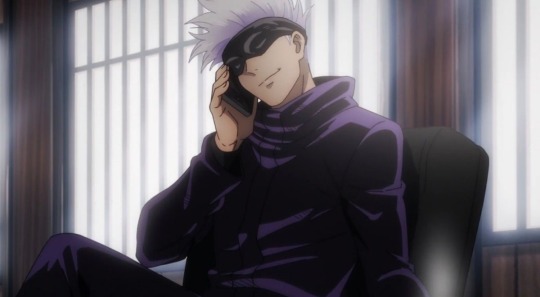
Disclaimer: English is not my mother tongue so please be nice
Words: 1968
Plot: In which you have been best friends with Gojo for a decade now and you have a crush on him
Pairing: gojo x female reader
Theme: fluff, friends to lovers, comfort
Shoko, with a mischievous glint in her eyes, leaned forward and said "So, when are you finally going to confess your feelings to Gojo?"
You take your eyes off your screen phone and look at your best friend. It was your day off and you decided to get some quality time with her and Utahime. It has been a while since you saw each other- Utahime is at Kyoto since years now and Shoko is always at the infirmary while your time is with the new generations of students- and you missed both of them so much.
The cafe buzzed with chatter as you were around a small table outside, sipping your drinks. The laughter and clinking of cups filled the air, creating a comfortable atmosphere.
Shoko looks back at Utahime and they both smile.
Utahime chuckled, sipping her tea. "Yeah, it's been a decade now. Isn't it about time you spill the beans?"
Feeling a bit embarrassed by their comments, you felt your cheeks warm up, and you suddenly tried to play it off with a casual shrug. "Come on, guys. You know Gojo can be insufferable. Confessing would just boost his ego even more."
Shoko smirked and crossed her legs before leaning a bit towards you. "Oh, please. We've all seen the way you look at him. It's like you're under some love spell."
A sigh left your parted and cold lips because you never thought it was this obvious. Who else knows about this? Does he knows, after all these years?
"Admit it. You've had a crush on him since day one." Utahime joins and holds her tea to stay a bit warm. It was almost winter and the air was getting colder and deprived of colors.
You sighed again and rolled your eyes, taking their comments in a playful way. You weren’t annoyed to talk about this topic, you were just a bit uneasy and anxious. "Okay, fine. Maybe I have a tiny, insignificant crush. But Gojo? Really?"
Your words made Shoko laughed and you glare at her. She lifted her hands up while Utahime chuckles. "You can deny it all you want, but it's written all over your face. The tension between you two is palpable."
Utahime chimed in, "Besides, annoying best friends often make the best partners. You know each other inside out."
The best partners?
You scoffed at her words, "Yeah, knowing Gojo 'inside out' is not always a blessing. He's a walking chaos generator."
Shoko teased, "But you love that chaos, don't you?"
Damn.
She knows you way too well.
You blushed, avoiding eye contact, and took another sip of your black coffee. "Well, maybe a little."
Utahime grinned, "So, what's stopping you from confessing?"
You sighed, "Fear of ruining our friendship, I guess. What if he doesn't feel the same way, and things get awkward? I can't afford to lose him"
Shoko patted your shoulder, "Life's too short for 'what ifs.' Just go for it. If he's your annoying best friend for ten years, he's probably noticed something by now."
And after all, she was right. Life is too short for some 'what ifs', especially in your case. Always putting your lives at risk, being constantly in stress of being attacked by some grade cursed spirits, and going on these shitty missions. But still, it's not that easy. Satoru is your best friend since a decade, it always been like this and confessing to him would only put your friendship in danger.
You absentmindedly took a sip of your coffee and thought of her words. Shoko, with a nonchalant air, pulled out a cigarette and lit it and took several drags, creating a small cloud of smoke around our table. You wrinkled your nose, waving the smoke away.
"Shoko, can you not do that here? We're in a cafe, not a bar," You said, trying to maintain some sense of decorum.
She simply grinned and blew a smoke ring in your direction, making you chuckle despite yourself. Utahime shook her head, amused by the display.
Shoko blew out another puff of smoke and grinned, "You should really take our advice, you know. Life's too short to let opportunities pass by."
You nodded, giving a half-hearted smile, "I know, I know. I'll think about it." Then you think of something and grinned at her too, "You should take your own advice. You know, for Haibara."
Just as the words left your lips, your phone vibrated on the table. Shoko's eyes widen and Utahime burst in laugh at the change of situation. You glanced at the screen and groaned audibly. Shoko raised an eyebrow, and Utahime looked curious as you picked up the call.
"Gojo," You muttered, rolling your eyes.
As soon as you said the name, Shoko smirked, "Speak of the devil."
You sighed and answered the call with a mix of irritation and anticipation, "What do you want, Gojo?"
His voice came through the phone, casually upbeat as always, "Hey, my favorite person! Just checking in. What are you up to?"
You sighed again and it was always like this. He was your best friend, you loved him, but gosh he was so annoying and always pulling your nerves, "Just hanging out with Shoko and Utahime. What about you?"
At your voice tone, Satoru chuckled, "Oh, you know, the usual. Saving the world, being the strongest, the usual Gojo stuff."
He's so annoying...
Shoko winked at you, clearly enjoying the situation. You shot her a glare before turning your attention back to the phone. Shoko and Utahime started to speak to each other and they seem to have some fun.
"Anyway, anything interesting happening in your life?" Gojo asked, his tone suggestive.
You couldn't help but roll your eyes again but not gonna lie, it was pleasing to hear his voice after some time, "No, Gojo, nothing interesting. Just the usual drama."
Shoko took another drag of her cigarette, watching you with a smirk. Utahime seemed entertained by the unfolding scene and listened to your conversation quietly.
Gojo laughed on the other end, "Well, if you ever need a break from the 'usual drama,' you know where to find me. I could use some company."
Your heart missed a beat.
Several beats actually.
Damn.
You sighed, "We'll see, Gojo. Maybe I'll take you up on that offer someday."
As you hung up, you turned to your friends, who were both wearing knowing smiles. Shoko gestured to the phone, "Looks like Mr. Gojo is interested in some company. Maybe it's time to take our advice, huh?"
You shook my head, feeling a mix of annoyance and butterflies in your stomach. "We'll see," You repeated, taking another sip of your coffee, contemplating the possibility of turning our years-long friendship into something more.
The school quarters were quieter than usual as you made your way back in the familiar corridors, lost in thought about the conversation with Shoko and Utahime. As you turned the corner, your eyes widened when you spotted none other than Gojo, casually leaning against a pillar.
He looked up from whatever he was observing in the distance, his trademark smug grin in place. And for the first time in years, he wasn't wearing his usual black blindfolded. His blue eyes met yours and you almost flustered, "Well, well, if it isn't my favorite person. Fancy meeting you here."
You raised an eyebrow, "Don't you have better things to do than loiter around school quarters?"
Gojo pushed himself off the pillar, strolling over with that effortless swagger of his. "Nah, just felt like enjoying the view. And by view, I mean you."
Such a flirt, yet you like it more than you wanted to believe.
You scoffed, trying to hide the fact that his presence always managed to throw you off balance. "What are you really doing here, Gojo? Waiting for your fan club to assemble?"
That was a good question because he was supposed to be away for a few days since the higher-ups put him on a 'urgent' mission. But you didn't mind at all. You had missed him.
He laughed at your words, a sound that echoed through the hallway.
Gosh, he loved your company so much.
Gojo smiled and winked at your words, "Maybe I missed you. Or maybe I heard you were back and couldn't resist the opportunity to grace you with my presence."
"You're impossible." You rolled your eyes but you crack a smile. He always managed to put a smile on your face even if you tried to stay mad at him.
Gojo chuckled, his gaze lingering on you for a moment longer than necessary. "So, anything exciting happen while you were away?"
You hesitated, considering the advice from Shoko and Utahime. Maybe it was time to take a chance. "Actually, there is something."
He raised an eyebrow, his interest piqued. "Oh? Do tell."
You took a deep breath, summoning the courage to speak your mind. "I was thinking about what you said earlier, about company. Maybe I could use some company."
Gojo's grin widened, and he leaned in slightly, his eyes gleaming with mischief. "Well, well. Looks like someone's finally catching on."
Suddenly, you stopped in your tracks, causing Gojo to look at you with a mix of surprise and curiosity. The quiet hum of the school corridors surrounded you as you took a deep breath, gathering your thoughts.
"Life's too short", You hear Shoko's words again.
"Satoru,"You began, your heart pounding, "there's something I've been meaning to tell you."
His blue eyes widened slightly, the playful smirk fading into genuine curiosity. "Well, don't keep me in suspense. What's on your mind?"
Taking another deep breath, you met his gaze and confessed, "I like you for a while now. And today, when you mentioned company, I realized that maybe I want more than just friendship."
Gojo's expression shifted from surprise to contemplation. There was a moment of silence that felt like an eternity before he grinned again, a different kind of spark in his eyes. "Took you long enough, didn't it?"
Uh?
You blinked as you stared into his beautiful eyes, unsure of how to interpret his response. "Wait, what?"
He chuckled, reaching out to gently brush a strand of hair away from your face. "I've known about your crush for ages, silly. I was just waiting for you to figure it out yourself."
Okay, so it was that obvious. Your jaw dropped, and you stammered, "You... you knew?"
Gojo nodded, his grin widening, "Of course, I knew. I'm not as oblivious as you might think. And I might have been dropping hints, hoping you'd catch on."
You felt a mix of embarrassment and relief, "Well, why didn't you say anything?"
Your heart missed several beats as you watch him coming closer to you. Usually you don't care, but now it's another thing. Everything is different. He leaned in, whispering, "Because I enjoy watching you get flustered, silly."
Before you could react, Gojo closed the distance between you, pressing his lips to yours. It was a moment of surprise, but as the initial shock wore off, you found myself kissing him back. The corridor, once silent, now held the echo of a confession that had finally been made.
As you pulled away, Gojo grinned, "So, about that company you were looking for..."
You couldn't help but laugh, realizing that maybe, just maybe, this confession was the beginning of something even more exciting than your years of friendship.
103 notes
·
View notes
Text
Why does Andorra not participate in Eurovision anymore?

Andorra participated in the Eurovision Song Contest in 2004, 2005, 2006, 2007, 2008 and 2009, but it has never come back since.
-
What happened?
In 2004, ATV (Andorra’s public TV channel) sent Marta Roure, who sang in the Catalan language for the first time in Eurovision history. Catalan is the native language of Andorra, but also of the rest of the Catalan Countries: Catalonia, the Valencian Country and la Franja in the state of Spain; Northern Catalonia in the state of France, and the city of l’Alguer in Italy. ATV didn’t have enough money to send a participant alone, but Andorra wanted to take part in the contest and to promote their language (Catalan) and culture.
For these reasons, they decided to partner with TV3, the public TV channel of Catalonia. This makes sense, given that it’s part of the same nation, with the same language, and Catalonia has a bigger population and a music industry that’s a bit more developed, and TV3 has more money than ATV because of its population and size. The contest to choose who would be sent was made in collaboration between ATV and TV3 and aired simultaneously in both TV channels.
-
Spain’s threat to not air Andorra’s song
When TVE (the Spanish TV) saw that Andorra was working with Catalonia and one of Andorra’s purposes for participating in ESC was to promote Andorra’s language (Catalan), the director board of TVE threatened that they would not air Andorra’s performance because they considered it was a way for Catalan people to be present in Eurovision, which they didn’t think should be allowed. Basically, TVE would air the whole contest as usual, but cut to commercials when Andorra performed as if they did not exist.
After negotiations, the directors of TVE did not change their mind, but for unrelated reasons the director was changed in April 2004. The new directors didn’t care as much about Andorra’s participation and they decided to air the whole festival.
-
Andorra’s results and TVE’s meddling
Andorra’s songs never did well in the classifications, they never had enough votes to pass to the final. The change arrived in 2009, the song chosen was “Get a life / La teva decisió” by the Andorran-Danish singer Susanne Georgi. After its release before Eurovision, the song was a success in Andorra and in the state of Spain. The hopes were high for the song receiving many votes!
undefined
youtube
But, last minute, TVE (Spain’s TV) decided to not air live the Eurovision semi-final where Andorra was taking part. TVE decided to record the semi-final and air it on a different day. This means that Spanish citizens (including most Catalan people), who could have voted for Andorra, had no way to watch the semi-final and, as a result, they could not vote.
Once again, Andorra didn’t get to the final. And this was when they thought they had a chance with a successful song! After this, Andorra has never come back to the song contest. The fact that they never qualified for the final, Spain’s continuous meddling, and the high economic cost of participating in ESC (which is very difficult to afford for a microstate’s TV) grew even more difficult with the economical crisis that was starting in all the continent.
However, Andorra has always maintained that they would like to come back to ESC.
Andorra has been the only country to sing in the Catalan language in ESC. Even though most Catalan-speaking territories are under Spanish rule and about 10,000,000 Catalan speakers live in the state of Spain, Spain has never sent a song in Catalan. In fact, when they chose the Catalan singer Joan Manuel Serrat in 1968, he said he would sing the song (called “La, la, la”) in Catalan. Then, the Spanish TV decided to take him out of the contest because they would only allow songs in Spanish. The song was given to the Spanish singer Masiel, who sang the same song in Spanish and won the Eurovision Song Contest 1968. Spain has never sent a single song in one of the languages of the territories its state occupies, even when some like Catalan and Galician have millions of speakers, and Basque has hundreds of thousands.
#andorra#eurovision#esc#eurovision song contest#spain#esc spain#esc andorra#eurovision history#catalan#tve#atv#2009#2000s music#música#arts#susanne georgi#rtva#minority languages#europe#españa#microstates#Youtube
277 notes
·
View notes